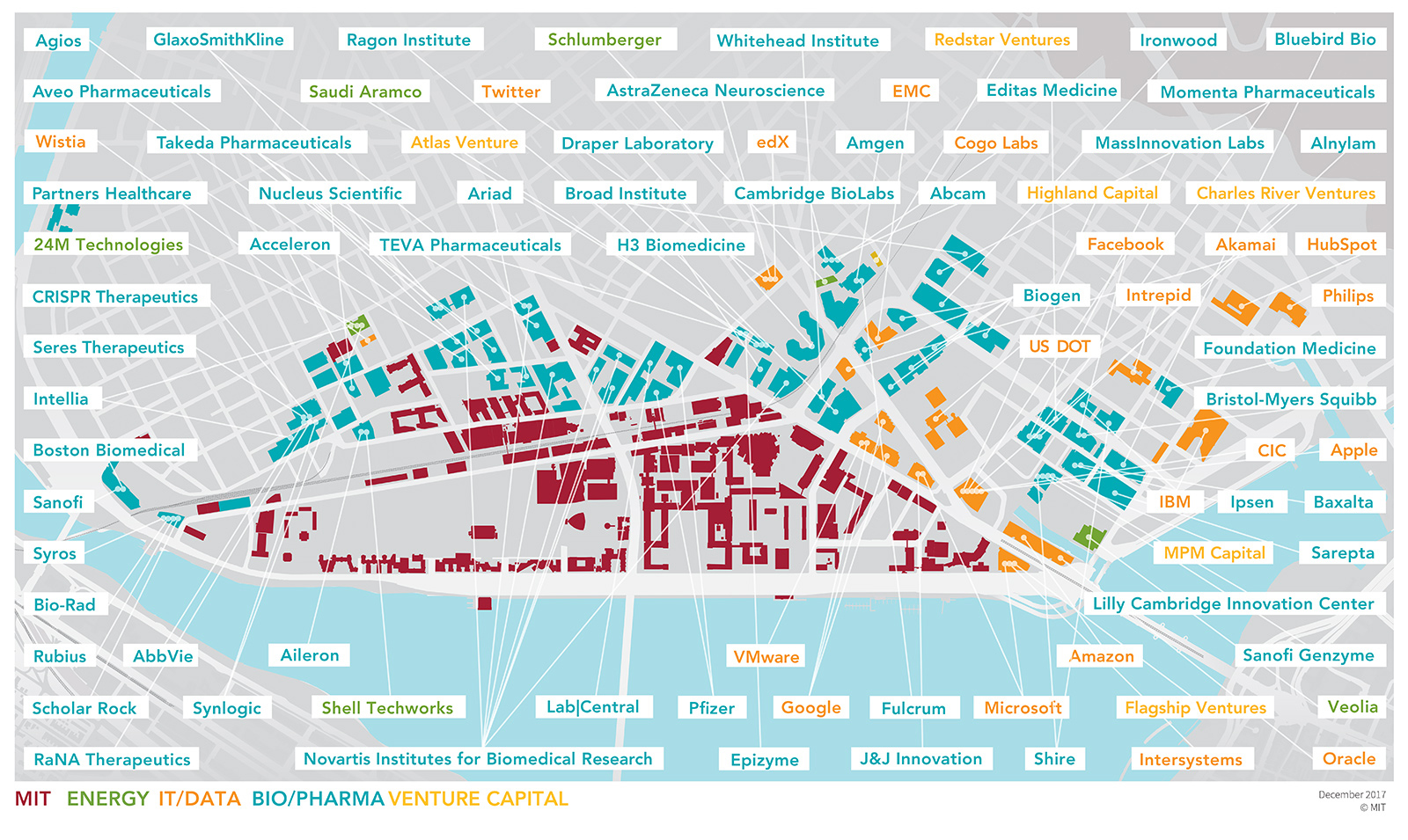Chemical Biology at MIT
The MIT Department of Chemistry is ranked #1 nationwide for graduate education in chemistry. Within the chemistry department, the MIT Program in Chemical Biology enables graduate students to address problems that transcend the traditional boundaries of chemistry and biology. Research at the intersection of these fields applies chemical strategies and molecular insight to probe and perturb biological systems in ways that are incisive and rigorous, and not attainable by other means. MIT chemical biologists interrogate processes that occur in human, plant, and microbial cells, as well as in viruses and animals. Their studies include investigations of endogenous and exogenous molecules and mechanisms of action with multi-disciplinary approaches that employ the penetrative tools of organic, inorganic, physical, theoretical, and materials chemistry. The vibrant environment in and around MIT (see the Map below) facilitates the fusion of chemistry with biology, often guided by bioinformatic and computational approaches. The ensuing information provides a sophisticated molecular understanding of complex biological systems and inspires new strategies to translate that understanding into solutions for critical problems that range from sustainability to the prevention, diagnosis, and treatment of diseases.
The MIT Program in Chemical Biology encourages its graduate students to develop integrative cognition. Students work closely with supportive faculty to learn the chemistry that underlies biology. Graduate education is enhanced by an environment of unsurpassed technology, which extends to empowering campus facilities such as the Broad Institute of MIT and Harvard, the Whitehead Institute for Biomedical Research, the Koch Institute for Integrative Cancer Research, MIT.nano, the Francis Bitter Magnet Laboratory, the Ragon Institute of MGH, MIT and Harvard, the Picower Institute for Learning and Memory, and the Center for Environmental Health Sciences. In addition, students often collaborate with researchers at the many leading corporations and renowned medical centers close to the MIT campus. All together, this incomparable experience equips MIT-trained chemical biologists with a lifelong ability to integrate ideas and methods to foster major breakthroughs.

MIT is at the worldwide epicenter of the life sciences industry. Over 100 pharmaceutical and biotechnology companies, large and small, are within a mile of the MIT campus. This proximity provides extraordinary opportunities for MIT chemical biologists.

